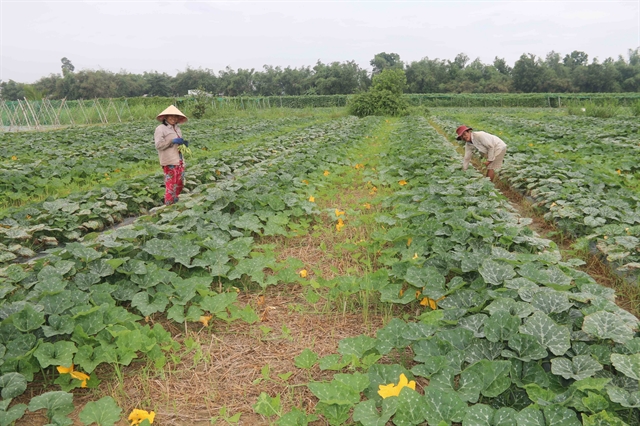 Environment
Environment

The Cửu Long (Mekong) Delta province of Trà Vinh will dredge its 18 main irrigation canals that run a total of 162 km in the next four years at a cost of VNĐ387 billion (US$16.7 million) to improve the supply of water for irrigation during dry seasons.

|
| Farmers tend vegetables in the 2020 - 21 winter – spring crop in Trà Vinh Province’s Cầu Ngang District. – VNA/VNS Photo Thanh Hòa |
TRÀ VINH – The Cửu Long (Mekong) Delta province of Trà Vinh will dredge its 18 main irrigation canals that run a total of 162 km in the next four years at a cost of VNĐ387 billion (US$16.7 million) to improve the supply of water for irrigation during the dry season.
The money will come from the Government and the province.
The canals provide freshwater to the major agricultural districts of Càng Long, Cầu Kè, Tiểu Cần, Châu Thành, Cầu Ngang, and Trà Cú and Duyên Hải Town.
The dredging will increase their capacity and help prevent the severe shortage of freshwater caused by saltwater intrusion during the dry season in recent years.
Phạm Minh Truyền, director of the province Department of Agriculture and Rural Development, said over the past four years the province had been severely affected by climate change, especially in the dry season, including impacts on agriculture and people’s lives.
Saltwater intrusion caused damages worth more than VNĐ1.1 trillion ($47.5 million) to agriculture in 2015 – 16 season and VNĐ1 trillion ($43.2 million) in 2019 – 20.
Of the VNĐ1 trillion damage in the latter season, loss of rice crops accounted for VNĐ919 billion ($39.7 million).
The two dry seasons saw record levels of saltwater intrusion.
With a coastline of 65 km, Trà Vinh is one of the provinces hardest hit in recent years, and is forecast to face severe saltwater intrusion in the current dry season.
The salinity levels have been 1 – 7.7 grammes per litre since December. To put it in perspective, most crops can only tolerate a salinity level of up to 1gm.
The province has closed all 50 saltwater prevention sluices to protect its rice paddies.
It has nearly 185,000ha of farmlands, or 70 per cent of its total land area.
To sustainably develop agriculture, in recent years local authorities have encouraged farmers to cultivate other crops on unproductive rice fields, including fruits, or switch to aquaculture.
In 2021 – 25 the province plans to do so with more than 8,000ha of such fields. – VNS




